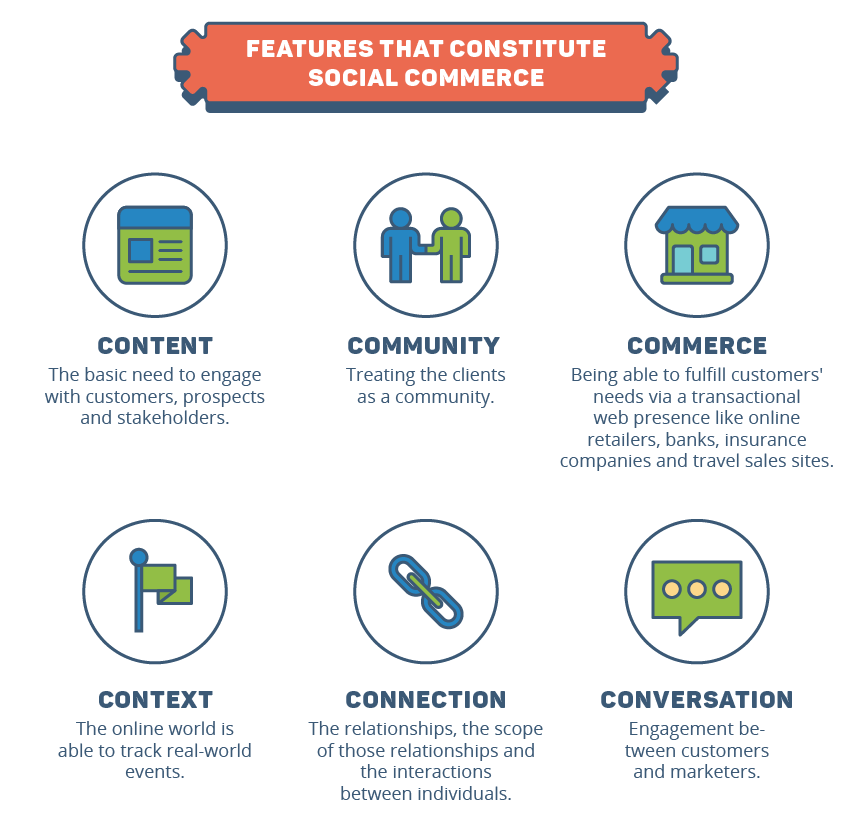 Ask six different people what social commerce is and you are likely to get six different answers. Some people will say that it is about building a community, others will say it is about enabling customers to buy online, or about creating a conversation with people.
Ask six different people what social commerce is and you are likely to get six different answers. Some people will say that it is about building a community, others will say it is about enabling customers to buy online, or about creating a conversation with people.
Who is right? Every one of these answers is correct, but that’s not all there is to social commerce.
Our friends at 16best recently published a great infographic, Social Networks and their importance in Ecommerce Gateways, that highlights the benefits of using social media and e-commerce in conjunction to meet customer demands.
Let’s dive in to the six pillars of social commerce.
The Six Basic Pillars of Social Commerce
1. Content
Providing content that is valuable to your clients is essential. This means resisting the urge to hard sell your products online and instead consider what your clients are looking for and what they would find useful.
Sending promos and vouchers is fine, but creating engaging content – be it through blogging, social media posts or user-generated reviews – is far more valuable in attracting new and retaining existing customers.
2. Community
The focus should be more on building a community, where followers are respected and valued.
3. Commerce
The commerce angle should also be considered. Can you provide your clients with everything they need to complete the transaction online? How easy is it to buy from you using, say, Facebook?
4. Context
You do need to consider real-world events when coming up with your social media strategy. What are current events that your clients might be interested in? As always, steer clear of religion and politics.
5. Connection
Part of building a community is fostering a connection. Build strong bonds by communicating with your clients one on one where appropriate. Focus on keeping the relationship between you healthy, just as you would in a real-world scenario.
6. Conversation
As a marketing exercise, creating a conversation with your clients is likely to be the most profitable use of your time. You can find out what their hopes and dreams are, what they like and don’t like, and really get to know them well. This is great for marketing at a later stage.
Social commerce encompasses a lot of different aspects, but they all boil down to one thing in the end – creating a better customer experience and building lasting relationships. Any exercise in this arena is money well spent.

